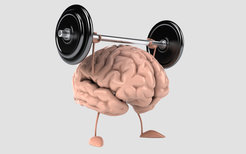Boosting Decision Making

Some of the most urgent challenges faced by modern societies are extreme weather due to climate change, the obesity epidemic, and biased decisions made by both humans and artificial intelligence in critical domains like medicine. Drawing on knowledge from the behavioral and computational sciences, we investigate and promote the use of “boosts” to improve human judgment and decision making, thus helping to address these major problems of our time.
The goal of boosts is to foster people’s decision-making competences, enabling them to exercise their own agency when making choices. Some boost interventions require little time and cognitive effort on the individual’s part; others require substantial amounts of training, effort, and motivation.
We study how probabilistic weather forecasts can best be communicated to emergency managers and the general public, how eating environments can be designed to promote healthy eating habits in children, how the wisdom of crowds can be harnessed to improve medical diagnoses and individual judgments, and how people can be taught to detect and shield themselves from being manipulated by artificial intelligence on social media.
Please visit https://scienceofboosting.org to learn more about boosting.
References
Dallacker, M., Hertwig, R., & Mata, J. (2019). Quality matters: A meta-analysis on components of healthy family meals. Health Psychology, 38(12), 1137–1149.
Fleischhut, N., Herzog, S. M., & Hertwig, R. (2020). Weather literacy in times of climate change. Weather, Climate, and Society, 12(3), 435–452.
Hertwig, R., & Grüne-Yanoff, T. (2017). Nudging and boosting: Steering or empowering good decisions. Perspectives on Psychological Science, 5, 973–986.
Kozyreva, A., Lewandowsky, S., & Hertwig, R. (2020). Citizens versus the internet: Confronting digital challenges with cognitive tools. Psychological Science in the Public Interest, 21(3), 103–156.
Lorenz-Spreen, P., Lewandowsky, S., Sunstein, C. R., & Hertwig, R. (2020). How behavioural sciences can promote truth, autonomy and democratic discourse online. Nature Human Behaviour, 4, 1102–1109.
Reijula, S., & Hertwig, R. (2020). Self-nudging and the citizen choice architect. Behavioural Public Policy. Advance online publication.
Wegwarth, O., Wagner, G. G., Spies, C., & Hertwig, R. (2020). Assessment of German public attitudes toward health communications with varying degrees of scientific uncertainty regarding COVID-19. JAMA Network Open, 3(12), Article e2032335.
